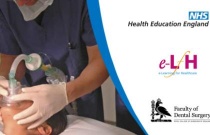SESSION 11: Climate and Health Research and Funding in Africa
Madeleine Thomson, Samuel Oji Oti, and Matthew Chersich
Through an interactive panel discussion, this session will provide a comprehensive overview of current research priorities at the nexus of climate change and health for the African region. We will explore key research areas and emerging challenges, gaining insights into the complex interplay between environmental factors and pub....
Scaling up Primary Care Networks (PCNs): Lessons from Kirinyaga County
Dr Brenda Maingi
This session explores the journey of establishing and scaling up Primary Care Networks (PCNs) in Kirinyaga County, highlighting strategies, challenges, and key lessons learned. It delves into how systems thinking and stakeholder collaboration were employed to strengthen primary healthcare delivery and improve access to quality....
Career Paths in Pharmacy
Dr John Mponda
his webinar has been organized to equip and inspire pharmacy professionals with knowledge regarding different career paths from available options.
Before the damage is done: The race to detect CKD early
Dr Ben Lamatayo MD, MRCP, EAKI Neph Fellowship, ESE Neph, FISN
Chronic Kidney Disease (CKD) is a leading cause of health complications worldwide, yet many individuals remain undiagnosed until significant damage is done. Join us for an insightful discussion on how early intervention can improve patient outcomes and reduce the long-term impact of CKD.
Preventing Stroke: Applying the Guidelines
Dawn Aycock
0.75 Hours
Stay current with the 2024 Primary Prevention of Stroke Guidelines and learn how to implement lifestyle and behavior changes to reduce stroke risk. This course will equip you with the latest pharmacological strategies, including antihypertensives and anticoagulants, to improve patient care and prevent stroke in your clinical pra....
Spotlight on Worsening Heart Failure
Tara Whitemire
0.75 Hours
Enhance your clinical practice by gaining a deeper understanding of guideline-directed medical therapy (GDMT) for heart failure and its limitations. This course explores effective strategies for screening and assessing patients with worsening heart failure, and provides insight into novel therapeutic options for those with progr....
Evaluating Chest Pain: Cardiac vs. Non-Cardiac
Debabrata Mukherjee
1.00 Hours
Enhance your clinical skills in evaluating chest pain with this comprehensive course on distinguishing cardiac from non-cardiac causes. By reviewing updated guidelines and best practices for assessment and treatment, you’ll be equipped to improve patient outcomes through accurate diagnosis and shared decision -making, especially....
Pharmacologic Management of Depression in Adults with CVD
Michelle Heyland
1.00 Hours
Join Dr. Heyland to review the common classes of antidepressant medications and their effectiveness in treating depression, discuss the dosing, titration, contraindications, and adverse effects of common antidepressant therapies in combination with common CVD therapies, and explore the application of antidepressant therapies in....
CVD Diagnostics: Demystifying which, when and why?
Abhinav Saxena
0.75 Hours
Gain a deeper understanding of cardiovascular diagnostic tests and their clinical applications. This course will help you choose the right tests based on patient symptoms, interpret results accurately, and collaborate effectively with your care team to improve patient outcomes. Enhance your decision - making skills and follow-u....
Atrial Fibrillation GDMT: Implementing the latest guidelines
Jackson Hermanson
0.75 Hours
Stay ahead of the curve with a comprehensive review of the 2023 Atrial Fibrillation guidelines, focusing on early rhythm control and the influence of social determinants of health. Learn effective pharmacological and non-pharmacological treatments for managing rate, rhythm, and preventing complications like stroke and embolism.....
Leadership Series: Increasing Diversity in Clinical Trials
Oluwabunmi "Bunmi" Ogungbe, Chloé D. Villavaso, and Heidi Salisbury
2.00 Hours
Discover the essential role of nurses in promoting diversity within clinic al trials and gain practical tools for patient recruitment and communication. By the end of this course, you’ll be empowered to advocate for inclusive research practices that enhance patient care and foster a more diverse, representative healthcare enviro....
Heart Failure Prevention and Treatment: Latest Guidelines
Dr. Nancy Albert
0.75 Hours
Stay up to date with the latest heart failure guidelines and enhance your clinical practice with this comprehensive course. You’ll explore key updates in diagnosis, imaging, and classification, as well as the critical role of cardiovascular nurses in prevention. Gain the knowledge to improve patient outcomes and better address t....
Testing Sponsor
Mr WCEA Administrator
Course Description* Please add a course description with a minimum of 20 characters.
Testing Sponsor #2
Mr WCEA Administrator
Course Description* Please add a course description with a minimum of 20 characters.
An update on earning CPDs points – providers and verification
Dr. Charles Tusiime
CPD to update Doctors on how to earn CPD points including which various providers & verification process
Professional guidelines for dental general anaesthesia
Kathy Wilson
This session will outline the UK national guidelines relating to the provision of general anaesthesia for dental treatment.
Managing Risk
Laura Gartshore
Risk management is a key aspect of clinical governance and involves having robust systems in place to understand, monitor and minimise risks to patients and staff and to learn from mistakes.
















